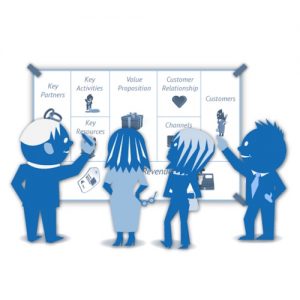Do You Have an Interesting Story to Tell?
![]() I am currently researching for my forthcoming book Going Global on a Shoestring. Part of the job is interviewing the executives of companies that are case story candidates for the book. After more than twenty such interviews I must conclude that most executives don’t have interesting stories to tell. The majority talk about their products and how excellent they are. They say that their mediocre performance in the past ten years will change next year. And when I ask why and how they start talking about operational issues and provide more product details.
I am currently researching for my forthcoming book Going Global on a Shoestring. Part of the job is interviewing the executives of companies that are case story candidates for the book. After more than twenty such interviews I must conclude that most executives don’t have interesting stories to tell. The majority talk about their products and how excellent they are. They say that their mediocre performance in the past ten years will change next year. And when I ask why and how they start talking about operational issues and provide more product details.
What do I expect?
 I expect executives to talk about their ambitions, their business model, their business model environment, their value proposition, their go-to-market approach, how they intend to outperform their competitors and how they will orchestrate and fund the journey. They don’t have to use these exact terms, but I do expect them to be familiar with contemporary business development concepts and terminology. And I do expect them to understand why they are spending time in an interview and how they will motivate me to give their company exposure in the book. Because the balance of power is in my favor. I do the research, and I write the book. There is only this one time opportunity. It is unlikely that another author will reach out to them anytime soon with the same opportunity for exposure. I, on the other hand, have thousands of companies to choose from – although I would hate to do a thousand interviews.
I expect executives to talk about their ambitions, their business model, their business model environment, their value proposition, their go-to-market approach, how they intend to outperform their competitors and how they will orchestrate and fund the journey. They don’t have to use these exact terms, but I do expect them to be familiar with contemporary business development concepts and terminology. And I do expect them to understand why they are spending time in an interview and how they will motivate me to give their company exposure in the book. Because the balance of power is in my favor. I do the research, and I write the book. There is only this one time opportunity. It is unlikely that another author will reach out to them anytime soon with the same opportunity for exposure. I, on the other hand, have thousands of companies to choose from – although I would hate to do a thousand interviews.
It is about the business model and not only about the product
 I am convinced that making it to global market leadership (which is what my book is about) requires great business models and not only excellent products. I thought that most executives would be familiar with the Alexander Osterwalder business model framework. And that they would have learned that the product is just a part of one of the nine business model building blocks. But they don’t, or at least they do not reveal this insight unless specifically asked.
I am convinced that making it to global market leadership (which is what my book is about) requires great business models and not only excellent products. I thought that most executives would be familiar with the Alexander Osterwalder business model framework. And that they would have learned that the product is just a part of one of the nine business model building blocks. But they don’t, or at least they do not reveal this insight unless specifically asked.
Designing a business model that can grow faster than your competitors is no simple job, but without a framework and a vocabulary to help you through the discussions, the job becomes even more difficult. How do you avoid all the blah blah?
You can choose any business development framework you want, but please don’t develop your own. Unless you are McKinsey & Company or The Boston Consulting group you are better off using industry standard business development frameworks and benefiting from the books, videos and consulting services readily available. A product or service company is not going to make it to global market leadership, by inventing their own proprietary business development theories. They win by applying the current ones better than their competitors.
You must be a public speaker
 Designing the roadmap for global market leadership requires the ability to tell a fascinating and convincing story. Not only to me but to all the stakeholders that you need to support your ambition. Staff, investors, owners, customers, consultants, suppliers, competitors, industry analysts, reporters, bloggers. Business success is a team sport, and you need people to help you plan and execute and to amplify your message to the market.
Designing the roadmap for global market leadership requires the ability to tell a fascinating and convincing story. Not only to me but to all the stakeholders that you need to support your ambition. Staff, investors, owners, customers, consultants, suppliers, competitors, industry analysts, reporters, bloggers. Business success is a team sport, and you need people to help you plan and execute and to amplify your message to the market.
I am here to listen
Please get in touch with me if you have an interesting story to tell. Send me a short message with the highlights and why you believe that your story is worth listening to. I will get back to you.








